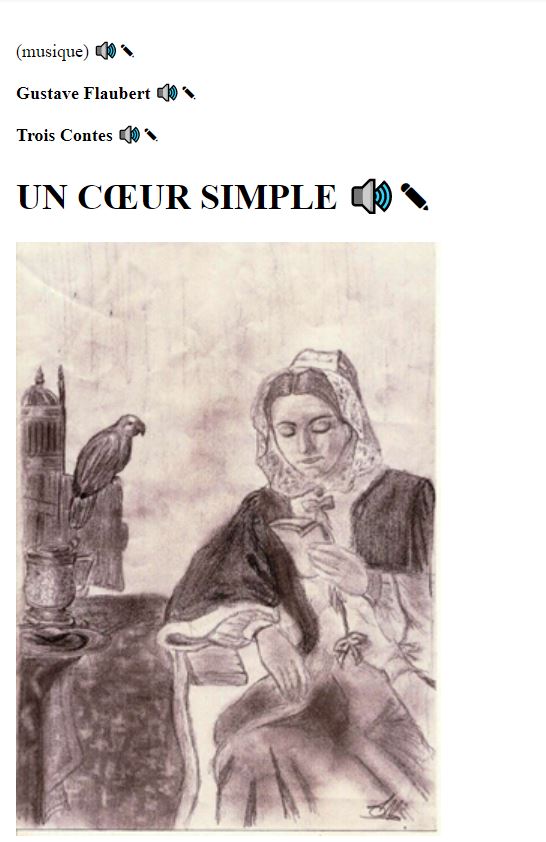What do you think?
Rate this book


35 pages, ebook
First published January 1, 1877
For half a century, the housewives of Pont-l’Évêque envied Madame Aubain her servant, Félicité.
For a hundred francs a year, she did the cooking and cleaning, sewed, did the laundry, ironed, knew how to bridle a horse, fatten fowl, churn butter, and remained loyal to her mistress – who, however, was not a pleasant person.
Sowings, harvests, wine presses, all those familiar things the Gospel speaks of, existed in her life; the passage of God had sanctified them; and she loved lambs more tenderly for love of the Lamb, doves because of the Holy Ghost.
She found it difficult to imagine his appearance; for he was not only a bird, but also a fire, and other times a breath. It might be his light that flutters about at night on the edges of swamps, his breathing that pushes the clouds, his voice that makes bells harmonious; and she remained in adoration, taking pleasure in the coolness of the walls and the tranquility of the church.
They had conversations, he, uttering over and over the three phrases in his repertoire, and she, replying with words that were no more connected than they, but in which her heart poured forth. Loulou, in her isolation, was almost a son, a lover. He climbed up her fingers, nibbled at her lips, held on to her kerchief; and, when she tilted her head forward and shook it the way nannies do, the large wings of the bonnet and the wings of the bird quivered together.
“Her face was thin and her voice shrill. When she was twenty-five, she looked forty. After she had passed fifty, nobody could tell her age; erect and silent always, she resembled a wooden figure working automatically.”Félicité endures hardships in her early life often being beaten and wrongly accused of theft. During a particular period she met a young man Théodore whom she was romantically involved, only to be relayed a message that he married an older woman to avoid conscription into the army. She eventually goes to work for Madame Aubain as cook, housemaid and nanny to her young children, Paul and Virginie. Félicité undertakes her duties with the utmost dedication and remains in the employ of Madam Aubain for fifty years.
“A blue vapour rose in Félicité’s room. She opened her nostrils and inhaled with a mystic sensuousness; then she closed her lids. Her lips smiled. The beats of her heart grew fainter and fainter, and vaguer, like a fountain giving out, like an echo dying away;—and when she exhaled her last breath, she thought she saw in the half-opened heavens a gigantic parrot hovering above her head.”The context of the parrot in the story is open for debate, is it a parody of an expectation which awaits the pious person at the end of life or does it represent her last love come to escort her to heaven?





